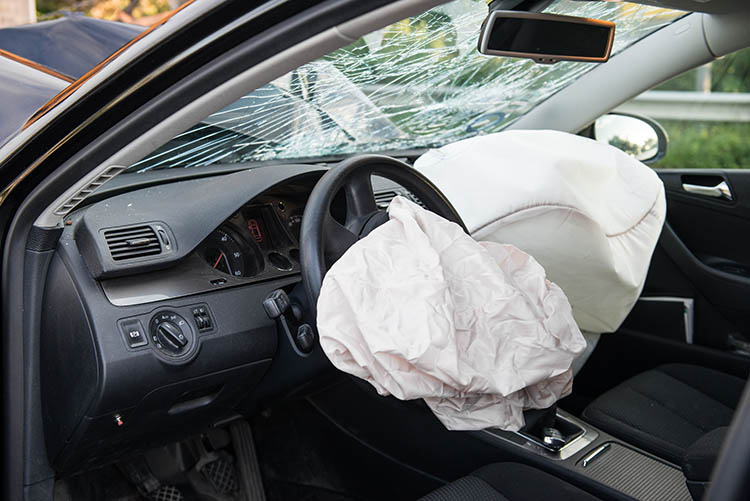
Mental Recovery After A Car Accident Can Be The Hardest Part
Car accidents can be traumatic. Individuals who are involved in an accident may suffer consequences in multiple ways, and the after-effects can linger for days, months or years. The impact can be felt in four different areas: physical, financial, logistical and emotional.
To recover from an accident, each area must be dealt with appropriately and effectively.
The first three areas are generally obvious. Physical complications from an accident can be visible: an injury or laceration that occurs during the course of the accident.
Dealt with by paramedics and emergency response teams, the individual can receive treatment at the scene or later at a hospital or doctor’s office. Some physical complications are less visible and can surface in the days and weeks after an accident. These injuries can manifest themselves in headaches, back or neck pain or other ailments that are not visible from the outside. The injuries can be dealt with by chiropractors, massage therapists and other treatment methods that can alleviate the pain.
Financial implications from an accident can also be obvious. There are costs associated with an accident for car repairs and medical bills. In some cases, there may be lost wages as a result of missed work. Drivers may incur fees due to traffic citations. Some accidents may result in civil charges that can be costly. Insurance rates may go up.
Logistical issues that arise after an accident can include temporary transportation while repairs are being made on a vehicle. Depending on how long the car will be out of use, a rental car may need to be acquired, or alternative transportation may need to be arranged. Driving privileges may be affected by an accident, resulting in license suspension or the need to take a driver safety course.
Emotional Responses to an Accident Are Varied and Individual
The less obvious results of a car accident are emotional. Individuals who have been through an accident, whether just a minor fender-bender or a major accident, can have long-term emotional trauma. Mental recovery after a car accident can be a lengthy and complicated process.
Are you healing from an automobile accident? These tips can help you navigate through the stages of emotional recovery.
Types of Emotional Response to Automobile and Other Accidents
It is normal to have an emotional response. A car accident can be traumatic. You can suffer from emotional swings in the days and weeks following an accident. Your emotions may surface in the form of:
-
- Fear. It is common to be afraid of getting behind the wheel of a car following an accident, or even to get in a car as a passenger. The fear should fade away over time. If your fears are persistent, get worse or become debilitating, it could be a sign of a larger issue.
- Guilt. Guilt can exhibit itself as survivor’s guilt when others may have suffered serious injury or death. It may also present itself if the accident was your fault and caused injury to others. There may be guilt from being involved in the accident.
- Flashbacks. Passing the scene of the accident, hearing sirens or seeing something that reminds you of the accident may trigger a flashback. The flashbacks may be involuntary, or you may find yourself replaying the sequence of the accident.
- Post-Traumatic Stress Disorder. PTSD can present itself as intense, repetitive memories of the accident. It may cause irritability, trouble sleeping or increasing levels of fear. If you are unable to drive or avoid even riding in a vehicle following an accident, it is an indication that you may be experiencing PTSD.
- Depression/Anxiety. Excessive worry, extreme fatigue or an inability to concentrate may be a sign of anxiety from an accident. If you have a sudden change in appetite, your sleep patterns become disrupted or you notice that you are becoming disinterested in activities you’ve enjoyed in the past, you may be experiencing depression.
If you are experiencing severe emotional responses to your accident, or if the emotional toll is affecting your ability to function normally, seek professional help.
Give yourself time to recover. Don’t expect to bounce back immediately after an accident. Cut yourself some slack and understand that it is perfectly normal to feel some anxiety after an accident.
Look for professional help. A trained professional can recommend appropriate therapy and techniques to help you move past the emotional fallout from an accident.
Take care of your physical health. Eat healthy foods, stay hydrated and exercise. By ensuring that you are taking care of your needs physically, you’re giving your body the tools it needs to function properly.
Why is it important to take the time to mentally recover after a car accident?
According to Psychology Today, high levels of anxiety and stress can be a contributing factor to chronic pain. In fact, most psychologists agree, physical symptoms can start to manifest themselves as a result of emotional trauma. Left untreated, the emotional scars from an accident can affect your health long after the accident is over.
Recovery is a process. No matter how minor or major the accident was, it takes time to heal, both physically and emotionally. The good news? Recovery is possible.
